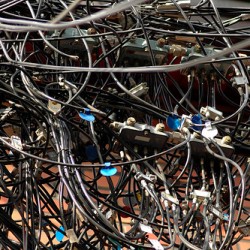
Classical Or Modern Poetical Literature In Contemporary and Technical English Dialectic
We live, and work, in a technological age. People have not only become used to jargon, but in many cases now feel more comfortable with it. All kinds of industries, and all kinds of jobs and skills within them, require complex language to manage the complex tasks and objectives of everyday commerce.
It is not surprising, therefore, that everyday English should be developing a more esoteric style.
There have been occasional forerunners of the style in the past. Who can forget that memorable nursery rhyme, “Scintillate, scintillate diminutive asteroid”? But it is only comparatively recently that the trend has become more widespread.
As with many modern trends, the Americans are leading the way, thanks to the advances pioneered by the US Government. It is comforting to know that ‘hunger’ is actually ‘an individual-level physiological condition that may result from food insecurity’ or that suicide attempts are ‘self-injurious behaviour incidents’.
A couple of years ago, we saw our first example on American television. The presenter of a weather forecast – sorry, a meteorological advisory – was clearly an early and expert practitioner. A lesser mortal might have said: “There may be showers.” The American forecaster, with laudable aplomb and a straight face, announced: “There is a fifty percent probability of precipitation activity.”
That is when we saw the future of the language. The germ of an idea, to help the English-speaking world to embrace the new ways of talking and writing, was born.
Hence COMPLICATED – the first movement dedicated to the new age of English. We will here present some examples of the genre, with renderings of some classic English texts from less enlightened times translated into COMPLICATED form.To assist those who still find the joys of abstruse prose a touch impenetrable, we have provided the original as a guide. You will soon get the hang of it.
Those of an analytical bent will discern some characteristics of good, COMPLICATED literature:
1. It is important not to allow any rhythm to distract from the words. Poetic meter and rhyme have no place. The poet William McGonegal occasionally glimpsed this truth in some of his more successful works.
2. Never use one word where a multiplicity of terminological references will suffice.
3. Long words are better than short ones. They have more letters and syllables, and therefore must clearly convey more meaning.
COMPLICATED is a style which is sweeping the English world, mainly to date in written texts, but also starting to be found more and more in the spoken word, especially in business situations. Those campaigners after plain English are realising that they have misinterpreted the spirit of the age, indeed the fashion in language use.
Just as once a few avant-garde artists and designers developed the Art Deco style, and found millions of people receptive to this as the style manifestation of the changing society of the twenties and thirties, so today COMPLICATED is in tune with society as it moves into the Information Age.
Here, of course, the Internet is playing its part. More and more web sites are springing up in pure COMPLICATED style. The computer literati of today have COMPLICATED running through their veins. A whole new generation is growing up for whom COMPLICATED is a way of life.
We hope you will soon come to appreciate the obvious attractions of the COMPLICATED style, and will increasingly adopt it for work and pleasure. If this web site can play its part in that process, it will not have been in vain!
